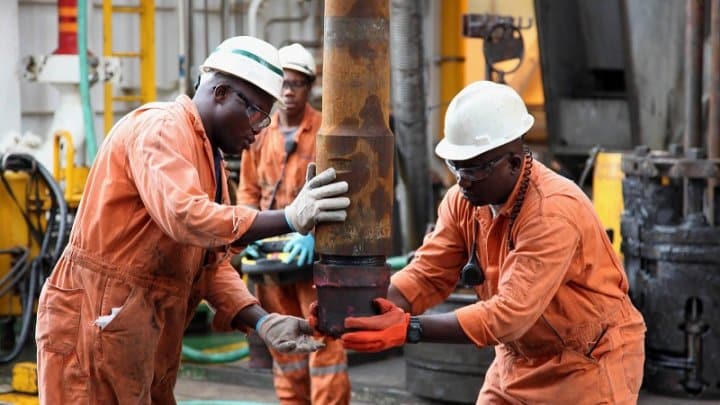The European Union has been trying for years to diversify its gas and oil suppliers in order to reduce its dependence on Russia, the source of 40 percent of its gas until the war in Ukraine. The war has highlighted this situation and, from the point of view of the European powers, the need to accelerate the search for new sources of gas and oil. For European leaders, this is not simply a way to avoid financing President Vladimir Putin’s war, but also to take away a geopolitical asset that the Kremlin knows how to leverage against the EU.
In this context, several European countries and companies have turned their greed toward the African continent, in particular for its important gas resources that place it in the spotlight of European “gas diplomacy.” However, this inevitably creates and accentuates regional tensions, and risks exacerbating the climate crisis that is already hitting Africa hard.
Thus, from the first days of the Russian invasion of Ukraine, Italy, which imports 45 percent of its gas from Russia, activated its diplomacy. Italian leaders met in March with Algeria’s leaders to increase production and exports to the European country from Algeria. They also met with Angolan and Congolese officials with the same objectives. For its part, Germany has already concluded agreements with Senegal and Mauritania, which share gas fields on their coasts. The EU also recently made an agreement with the Egyptian dictatorship of Marshal Abdel Fattah al-Sissi and the colonial state of Israel for these two countries to export gas to the continent.
But state actors are not alone in their scramble to find new energy resources. U.S. and European energy executives, too, are meeting privately with governments across Africa to persuade them to accelerate gas projects to meet the continent’s energy demand. For example, Italian multinational oil and gas company Eni is accelerating its liquefied natural gas (LNG) projects in Congo and has already signed new gas contracts there and in Angola.
However, this may be easier said than done: European leaders on the ground are facing competition from Asian countries that have had longstanding long-term agreements with African producers. According to Mamadou Fall Kane, energy advisor to the Senegalese president, the country’s first energy shipments are reserved for the Asian market. However, regarding negotiations with Germany on new shipments to the EU, Kane notes that, “nothing prevents renegotiating destinations with the operator due to the change in energy geopolitics.” Thierry Bros, professor at the Paris Institute of Political Studies, points out another aspect: “Europe is very lucky, because it redirects gas coming from projects built in particular by China. The additional 40% of LNG compared to 2021 that arrived in May was bought from China, India, etc. We benefit from the investments of others, but the producing countries and the oil and gas majors need long-term contracts.”
In other words, this shift in European gas diplomacy is beginning to have repercussions for African governments and their partnerships with China, other Asian countries, and even Russia. And if in the case of Senegal the government seems willing to redirect its production to Europe, it is not so simple for all parties. Some governments prefer to maintain a “neutral” position in these frictions that increasingly oppose two blocs at the international level.
African Governments in an Awkward Position
In recent years, several African states have developed sometimes close ties with China and Russia. These are not only in the realm of trade and investment, but also in armament and military cooperation. In fact, unlike in Western imperialist countries, where the weight of public opinion forces leaders to set some (often minimal) conditions in terms of respect for certain rights and civil liberties, China and Russia do not have the same requirements for agreements.
Thus Nigeria, Africa’s largest oil and gas producer, while maintaining very good relations with Western powers, has fairly fluid trade relations with Russia and has recently signed military agreements with Moscow, including training and the sale of equipment. This makes it very difficult for the Nigerian government to fully condemn Russia for its invasion of Ukraine. But the complexity of the situation was expressed in the words of the Nigerian president who declared last week that he was ready to “fill in the natural gas gaps” in the EU left by Russia’s invasion of Ukraine.
One of the clearest examples of this is Mozambique. The country has good relations with Western powers and Ukraine, as well as with Russia and China, and its economy has thus been affected by the war. For example, $76 million of the $521.3 million worth of grain imports in 2020 came from Russia — plus an additional $9 million in fertilizer imports — and $21.7 million came from Ukraine. Nearly 20 percent of Mozambique’s wheat imports came from these two countries.
Mozambique also has military ties to Russia and Western imperialist powers. This is especially important for the country given the continuing conflict in Cabo Delgado, a region in the north of the country that is very poor but is the location of recently discovered gas fields coveted by large energy multinationals such as TotalEnergies.
Mozambican analyst Calton Cadeado expressed the government’s position in his own way in an interview with the German press:
Western partners are pressuring Mozambique to position itself in favor of the Ukrainian cause, which they support … Now, Russia cannot force us not to sell our gas to the European Union or to certain European countries that need it, without giving us guarantees that this will not harm our national interest. Mozambique’s national interest, as a country, is to make friends with everyone and develop projects for Mozambique.
Mega Projects and Climate Change
Although some African leaders want to maintain their good relations with Russia, this does not mean that they will stop trying to make the most of the new situation in the fossil fuel market. As illustrated above, Nigeria, for example, is playing on both sides of the conflict. This country, which has the continent’s biggest population and largest gas reserves, is precisely at the center of two mega-projects to export gas to Europe.
The first is the Trans-Saharan Gas Pipeline. This 4,128 km (2,565 miles) gas pipeline project runs from Warri in Nigeria to Hassi R’Mel in Algeria via Niger. From Algeria, Nigerian gas could supply Europe via Spain or Italy to Germany and other European countries that are currently heavily dependent on Russian gas. The project was conceived in the 1980s but the first agreement was only signed in 2009. However, the war in Ukraine and the EU’s gas needs pushed representatives of Algeria, Niger, and Nigeria to sign an agreement in June to get the necessary work underway. Nonetheless, many doubts remain about the feasibility of this project, which would cross areas dominated by major armed conflicts, from the Niger Delta to the Sahel.
The other major project is the construction of an underwater gas pipeline along the Atlantic coasts of more than a dozen African countries to Morocco and then Spain. Such a project raises the same questions about the safety of the areas the pipeline would cross, and affects several countries rife with political instability. One example is the crisis in Western Sahara, which involves growing tensions between Morocco and Algeria, which historically supports the Saharawis in the face of Moroccan claims to the territory.
The rekindling of regional conflicts and the emergence of new ones is a likely consequence of the EU’s accelerating policy of seeking new gas and oil suppliers. Another likely consequence is a more aggressive policy on the part of European imperialist powers in Africa, where they will want more than ever to install docile governments, favorable to their interests. The role of the former colonial powers, including France, will be decisive in this respect.
However, another effect of this turn of events concerns a very sensitive issue for the African continent: climate change and increasingly frequent environmental disasters. Indeed, geopolitical interests have so far prevailed over the tepid measures to which the major world powers had committed themselves during the last UN climate change conferences and the Paris Climate Accords. Now, the imperialist powers are putting pressure on all countries that can help them reduce their dependence on Russia to develop gas projects, regardless of the effects on the climate.
Africa is particularly concerned; it is one of the continents most directly affected by global warming and at the same time the one that emits the least greenhouse gasses. The increasing exploitation of African energy sources could run counter to the interests of the peoples of the continent — that is, it could benefit repressive and corrupt political regimes and privileged layers of the African ruling classes while causing even more natural disasters.
At the same time, analysts believe that this “gas rush” could also become a mirage for African states seeking future profits from lucrative energy contracts. Gas prices may decline over time as projects mature, as renewable energy becomes cheaper and more reliable, and as countries turn to sources like nuclear power. In other words, from the point of view of the African working and popular classes, this much-vaunted gas boom holds little promise, whether from a social, economic, or ecological perspective.
Increased Power Rivalries and Anti-Imperialist Struggle
The war in Ukraine marks a turning point in international politics: increasingly, two blocs seem to be forming, with the rivalry between them marking new international realignments. On the one hand we have the major Western imperialist powers; on the other, China and Russia, which increasingly share political and economic interests (albeit marked by contradictions). These two countries seek to revive the “BRICS” bloc (Brazil, Russian, India, China, and South Africa) to influence the countries of the so-called “Global South.”
In this regard, Antonia Colibasanu of Geopolitical Futures writes:
The G-7, and the so-called West more generally, needs allies to help it defend existing international rules and norms and to help it reduce its reliance on Russian energy. It also needs allies against the potential food crisis, which is orchestrated by Russia – itself a massive food producer – via its destruction of Ukrainian grain storage facilities and a Black Sea blockade. To that end, the German hosts of the G-7 summit invited Argentina, India, Indonesia, Senegal and South Africa to join.
In other words, every new ally is crucial to Western imperialism. But this search for allies will not happen simply through diplomatic negotiations. If the situation deteriorates sufficiently, more overtly aggressive policies of interference may return to the African continent and elsewhere. Of course, we cannot exclude the same tactics from China or Russia. If at the international level we are moving towards a world with more friction between powers, we could see more and more struggles between sectors of the ruling classes, which may respond more to one bloc than to the other depending on the country. This balancing act will be difficult to sustain in the long run for African governments.
From the point of view of the African working class and popular sectors, the question is whether greater aggressiveness and interference on the part of the imperialist or other world powers could create a kind of progressive national sentiment that could evolve towards revolutionary forms of anti-imperialism, and class independence vis-à-vis the various capitalist blocs.
In this context, workers’ struggles in these capitalist blocs which counter the reactionary plans of the imperialist bourgeoisies at the national or international level would encourage the working class of the various African countries. The opposite is also true: the struggle of the workers, youth, and popular classes in Africa can stimulate the struggles of the workers in the imperialist states. This class unity will ultimately be decisive in preventing further suffering for the peoples of Africa, but also in going beyond defensive struggles and revolts and putting these classes on the offensive.
Originally published in Spanish on July 12 in La Izquierda Diario.
Translation by Paul Ginestà











